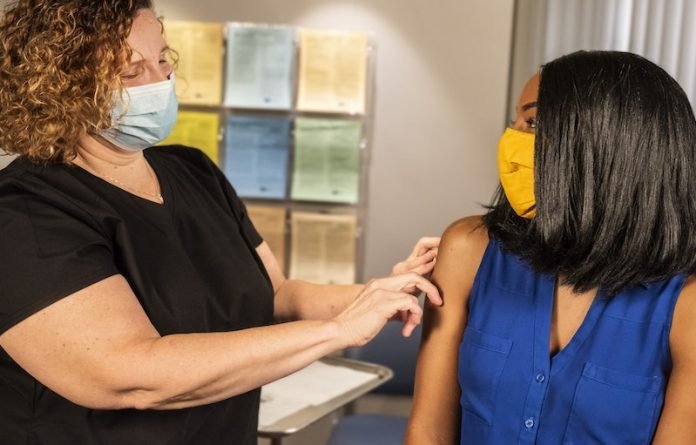
In a study from Oregon Health & Science University, scientists found immunity from COVID-19 appears to gather strength with more time between vaccination and infection.
The findings have implications for vaccine recommendations as the pandemic transitions to an endemic state.
In the study, researchers measured the antibody response in blood samples for a group of people who gained so-called “hybrid immunity” through two means: either vaccination followed by a breakthrough infection, or by getting vaccinated after contracting COVID-19.
They measured the immune response in blood samples of 96 generally healthy OHSU employees.
The team found that the immune response was uniformly stronger the longer the time period between vaccination and infection. The longest interval measured was 404 days.
Their findings suggest that vaccine boosters should be spaced no more frequently than a year apart, at least among healthy people.
The team says longer intervals between natural infection and vaccination appear to strengthen immune response for otherwise healthy people.
This new research is the latest in a series of laboratory discoveries by OHSU scientists revealing a pattern of the strengthened immune response through hybrid immunity.
Their findings suggest that the magnitude, potency, and breadth of hybrid immune response all increased with a longer time period between exposure to the virus—whether through vaccination or natural infection.
This likely is related to the body’s immune response maturing over time.
Further, the research team found that it didn’t matter whether someone developed hybrid immunity by getting vaccinated after contracting COVID-19 or after a breakthrough infection following vaccination. Both groups developed an equally potent immune response.
The findings suggest the long-lasting potency of so-called “memory cells,” the B cells that recognize an invading virus and generate protein antibodies to neutralize the virus and its many variants.
The authors suggest that an ever-growing pool of people who have contracted the SARS-CoV-2 virus stand to benefit from vaccination, even if they’ve delayed it until now.
If you care about COVID, please read studies about Vitamin D deficiency linked to severe COVID-19, and low-sodium plant-based diets may prevent COVID-19 better.
For more information about COVID, please see recent studies about new evidence on rare blood clots after COVID-19 vaccination, and results showing zinc could help reduce COVID-19 infection risk.
The study was conducted by Fikadu Tafesse et al and published in the Journal for Clinical Investigation Insight.
Copyright © 2023 Knowridge Science Report. All rights reserved.



